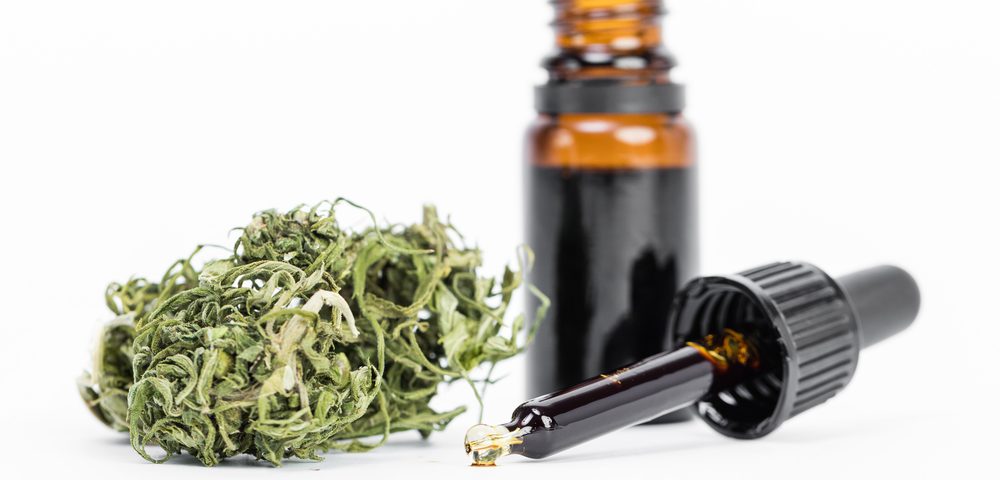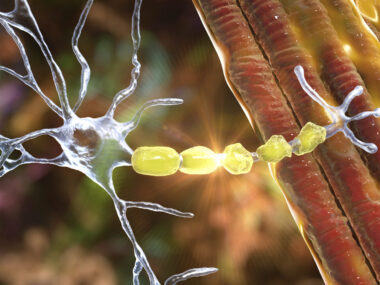Cannabidiol Increases Inflammatory Suppressor Cells, New MS Mouse Study Shows
Written by |

Non-psychoactive cannabidiol (CBD), one of the active compounds in medical cannabis, significantly reduced clinical signs of multiple sclerosis (MS)-like disease in an experimental autoimmune encephalomyelitis mouse model. Researchers found that CBD promoted the increase of inflammatory-suppressor cells called myeloid-derived suppressor cells.
The findings were reported in the study “Cannabidiol Attenuates Experimental Autoimmune Encephalomyelitis Model of Multiple Sclerosis Through Induction of Myeloid-Derived Suppressor Cells,” published in the journal Frontiers in Immunology.
Medical cannabis contains more than 100 pharmacologically active compounds (called cannabinoids), which have been shown to exert potent anti-inflammatory effects and to be potential therapies for a number of autoimmune diseases, including MS.
In MS, evidence supports the potential of CBD, one of the most studied cannabinoids, along with tetrahydrocannabinol (THC), to modulate spasticity, as well seizures, inflammation, pain, anxiety, and other conditions. The fact that CBD does not have the psychoactive properties (the so-called “high”) that accompany THC, makes it a more attractive therapeutic.
Moreover, CBD has been reported to have neuroprotective effects, halting brain inflammation. However, the mechanisms through which CBD suppresses neuroinflammation in MS remain unknown.
Now, researchers at the University of South Carolina School of Medicine used the MS mouse model, called experimental autoimmune encephalomyelitis (EAE) model, to evaluate the effects of treatment with CBD on neuroinflammation.
Discuss the latest research in the MS News Today forums!
The team focused on a group of cells called the myeloid-derived suppressor cells. These cells suppress inflammation and are thought to play a critical role in suppressing neuroinflammation in MS.
From the moment EAE mice began developing clinical signs of MS (day nine after EAE’s induction), researchers gave them daily doses of CBD, administered intraperitoneally (into the abdomen) at a dose of 20 mg/kg. Treatment continued until the end of the study (day 25).
Treatment with CBD delayed the onset of disease and significantly reduced clinical signs of EAE as compared to control mice (no CBD treatment). The treatment also reduced the infiltration of immune cells into the animal’s central nervous system (spinal cord and brain).
Moreover, CBD decreased the production of pro-inflammatory cytokines (signaling molecules), like interleukin (IL)-17 and interferon (IFN)-gamma, while promoting the production of those with anti-inflammatory properties, namely IL-10.
Researchers went on to investigate whether CBD’s effects in EAE also was linked to an increased production of myeloid-derived suppressor cells.
They analyzed the abdominal region of the mice (the location of CBD administration) and saw a massive influx of myeloid-derived suppressor cells at both day 10 and 12 compared to control animals. Eventually, the cells declined by day 16.
In the spinal cord and brain of CBD-treated mice, however, the number of myeloid-derived suppressor cells was lower than those in control animals.
In vitro experiments showed that the myeloid-derived suppressor cells inhibited the proliferation of T-cells, the immune cells carrying the attack against myelin in MS.
In a final experiment, researchers showed that injecting purified CBD-induced myeloid-derived suppressor cells into EAE mice slowed disease progression, shown by a significant reduction in clinical scores and T-cell infiltrates into the central nervous system.
Overall, the results suggest myeloid-derived suppressor cells play “a crucial role in CBD-mediated attenuation of EAE,” researchers wrote, and that “CBD may constitute an excellent candidate for the treatment of MS and other autoimmune diseases,” they concluded.


